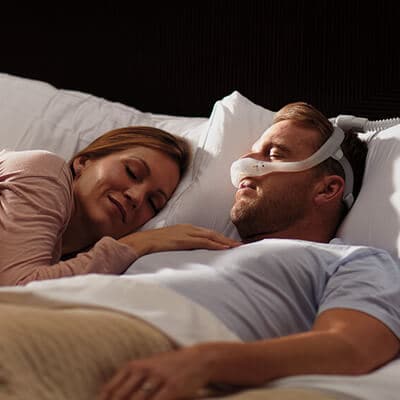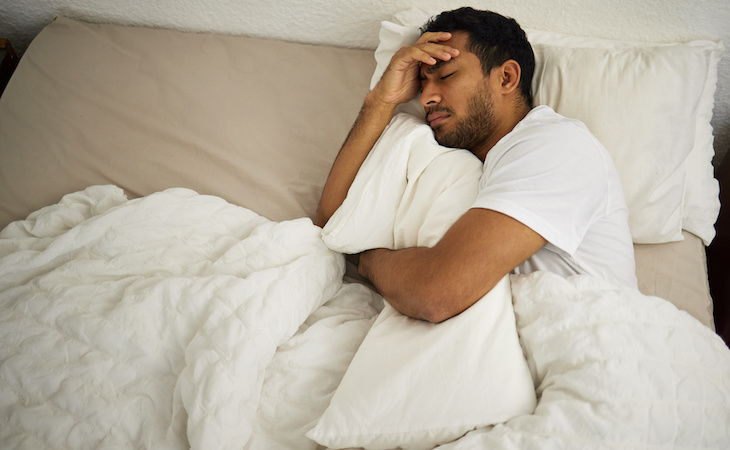Cognitive Behavioral Therapy for Insomnia (CBT-I) - Proven Methods
Wiki Article
Reliable Therapy Solutions for Handling Sleep Disorders and Enhancing Restful Sleep
In the world of health care, the administration of rest disorders and the mission for relaxing rest are essential components of general well-being. As we browse the intricate landscape of rest conditions and look for to enhance our sleep experience, a much deeper understanding of these therapy options may hold the key to opening a more relaxing and meeting restorative journey.Cognitive Behavioral Therapy for Sleeplessness (CBT-I)
Cognitive Behavior Treatment for Insomnia (CBT-I) is an organized, evidence-based therapy strategy that focuses on dealing with the hidden variables contributing to sleep disruptions. This sort of treatment intends to modify behaviors and thoughts that worsen insomnia, ultimately promoting healthy and balanced sleep patterns. CBT-I usually entails several vital parts, consisting of cognitive treatment, rest restriction, stimulation control, and sleep hygiene education and learning.Cognitive therapy aids individuals determine and change negative idea patterns and beliefs regarding rest that may be impeding their ability to fall or remain asleep. Rest constraint involves limiting the amount of time invested in bed to match the person's real rest duration, thus increasing sleep efficiency (insomnia therapy). Stimulation control techniques aid develop a solid organization between the bed and rest by motivating people to visit bed just when sleepy and to avoid involving in boosting tasks in bed
In addition, rest health education and learning concentrates on establishing healthy and balanced sleep practices, such as keeping a consistent sleep schedule, creating a relaxing bedtime regimen, and enhancing the rest environment. By addressing these variables thoroughly, CBT-I offers an efficient non-pharmacological treatment for handling sleeping disorders and enhancing total sleep quality.
Sleep Health Practices
Having developed the foundation of cognitive restructuring and behavior adjustments in addressing sleeping disorders with Cognitive Behavioral Therapy for Sleeplessness (CBT-I), the emphasis now shifts in the direction of checking out necessary Rest Health Practices for keeping optimal sleep high quality and overall well-being.Rest health practices incorporate a series of routines and ecological factors that can substantially affect one's capacity to go to sleep and remain asleep throughout the evening. Constant sleep and wake times, producing a relaxing going to bed routine, and enhancing the sleep atmosphere by maintaining it dark, peaceful, and cool are vital elements of excellent rest health. Restricting exposure to screens before going to bed, preventing stimulants like high levels of caffeine close to going to bed, and engaging in regular physical activity during the day can likewise promote far better sleep top quality.
Additionally, practicing relaxation techniques such as deep breathing exercises or reflection before bed can aid calm the mind and prepare the body for sleep. By integrating these rest hygiene methods into one's everyday routine, individuals can develop a healthy and balanced rest pattern that sustains peaceful rest and general health.
Leisure Methods and Mindfulness
Implementing leisure strategies and mindfulness methods can play a crucial duty in fostering a feeling of calmness and advertising high quality sleep. insomnia counseling. These techniques aim to peaceful the mind, decrease stress and anxiety, and create an optimum setting for relaxing sleep. One commonly exercised approach is deep breathing workouts, where individuals focus on slow-moving, deep breaths to relax the body and mind. Modern muscle leisure includes tensing and afterwards launching each muscle group, advertising physical leisure. In addition, led images can assist transfer individuals to a tranquil area in their minds, helping in tension reduction and improving rest top quality.Mindfulness methods, such as meditation and yoga, are also reliable in advertising relaxation and improving sleep. Mindfulness encourages people to remain present in the moment, letting go of worries about the past or future. By including these methods into a going to bed routine, people can indicate to their find more information bodies that it is time to relax and prepare for sleep. Overall, incorporating relaxation strategies and mindfulness methods can significantly add to managing sleep problems and boosting total rest top quality.

Medicine Options for Sleep Disorders
After checking out relaxation strategies and mindfulness techniques as non-pharmacological treatments for improving rest high quality, it is vital to consider medication options for people with sleep conditions. In instances where way of living changes and treatment do not rem sleep disorder give adequate alleviation, medicine can be a valuable tool in taking care of rest disruptions.
Typically suggested drugs for sleep problems consist of benzodiazepines, non-benzodiazepine hypnotics, antidepressants, and melatonin receptor agonists. Benzodiazepines, such as diazepam, are sedatives that can assist cause sleep, however they are typically recommended for temporary use due to the risk of dependence. Non-benzodiazepine hypnotics like zolpidem are also utilized to deal with insomnia and have a lower threat of reliance compared to benzodiazepines. Antidepressants, such as trazodone, can be advantageous for individuals with co-occurring clinical depression and sleep disturbances. Melatonin receptor agonists, like ramelteon, target the body's all-natural sleep-wake cycle and can be helpful for regulating sleep patterns.
It is crucial for people to speak with a healthcare copyright to identify the most suitable medicine option based on their details rest problem and clinical background.
Light Therapy for Circadian Rhythm Guideline
Light therapy, additionally referred to as phototherapy, is a non-invasive therapy method made use of to manage circadian rhythms and improve sleep-wake cycles. This therapy entails exposure to intense light that resembles natural sunlight, which helps to reset the body's biological rhythm. By revealing individuals to specific wavelengths of light, usually in the early morning or evening depending upon the preferred result, light treatment can properly change the body clock to promote wakefulness throughout the day and improve relaxing rest at night.Study has actually shown that light treatment can be specifically advantageous for individuals with body clock problems, such as postponed rest stage disorder or jet lag. It can likewise fibromyalgia and sleep apnea be helpful for those experiencing seasonal affective problem (SAD), a type of clinical depression that usually takes place throughout the cold weather when all-natural light direct exposure is reduced. Light therapy is typically well-tolerated and can be used in conjunction with other therapy approaches for rest conditions to optimize outcomes and enhance total sleep top quality.
Verdict
To conclude, efficient therapy options for taking care of rest problems and enhancing restful rest include Cognitive Behavioral Treatment for Sleep Problems (CBT-I), rest health practices, leisure methods and mindfulness, medicine options, and light treatment for body clock guideline. These strategies can aid people enhance their sleep high quality and overall health. It is essential to consult with a healthcare provider to determine one of the most suitable technique for dealing with sleep concerns.
As we browse the elaborate landscape of rest disorders and look for to improve our rest experience, a much deeper understanding of these therapy options may hold the trick to unlocking a much more rejuvenating and meeting restorative trip.
Sleep limitation involves restricting the amount of time invested in bed to match the individual's actual rest period, therefore raising rest effectiveness. Constant rest and wake times, developing a relaxing bedtime routine, and maximizing the rest setting by maintaining it dark, quiet, and cool are critical parts of excellent rest health. Light treatment is usually well-tolerated and can be made use of in conjunction with various other treatment techniques for sleep conditions to optimize end results and enhance general sleep top quality.

Report this wiki page